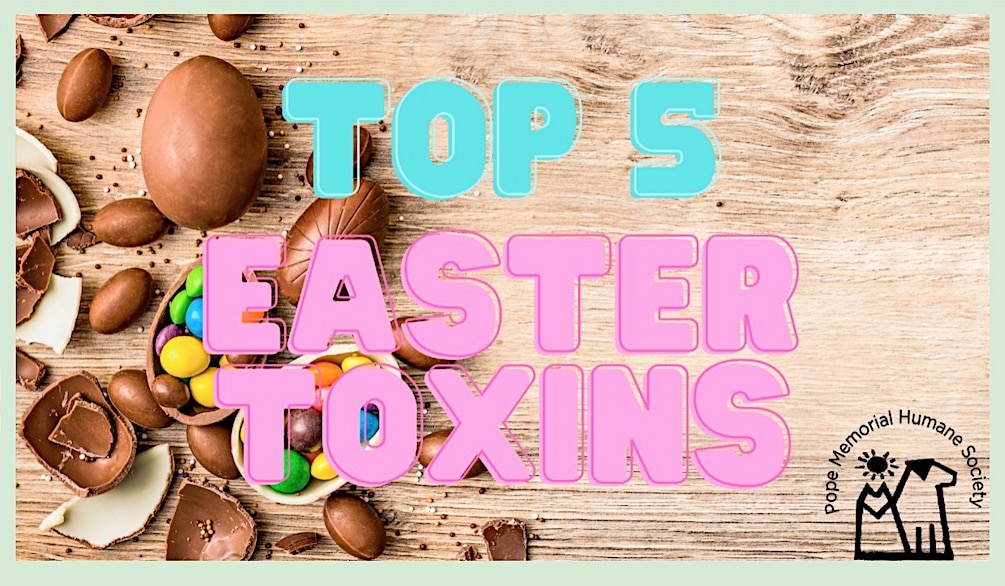
A Timely Reminder
Each Easter weekend, the Animal Poison Control Center (APCC) gets calls for many of the same types of intoxications.
1. CHOCOLATE
Easter is typically the APCC’s top day for chocolate intoxication calls, topping Christmas, Valentine’s Day, and even Halloween! Why? Pets find Easter candy hidden around the house or the yard or get into unattended Easter baskets. Make sure that all candy is out of reach of pets at all times when they will be unsupervised.
2. LILIES
True lilies (with the Latin name starting with Lilium) or daylilies (Hemerocallis) are a concern for acute kidney injury in cats. We discourage cat owners from keeping Easter lilies (Lilium longiflorum) in their homes. If you must have them in your home, make sure cats can’t access any part of the plant, including leaves (on the plant or loose), pollen, or the water flowers were stored in—all can be life-threatening.
3. EASTER GRASS
The plastic grass found in Easter baskets is appealing to pets but can cause a life-threatening gastrointestinal obstruction that may require surgery to resolve.
4. TABLE FOOD
Onions, garlic, macadamia nuts, grapes, raisins, and xylitol-containing foods are common toxins that pets ingest. However, many foods that aren’t toxic may cause stomach upset that could lead to pancreatitis.
5. HERBICIDES
Many people begin spring yard work on Easter weekend. Make sure herbicides are kept where pets can’t chew or puncture the bottle and that the application is dry before letting pets outside. Pets are often exposed when they are outside while their owners are spraying these products. While many herbicides are not highly toxic, any exposure does warrant a call to the vet.
If you suspect your pet has ingested any of these items, or you have an emergency, please call your local veterinarian or the Midcoast Animal Emergency Clinic at (207) 273-1100.
